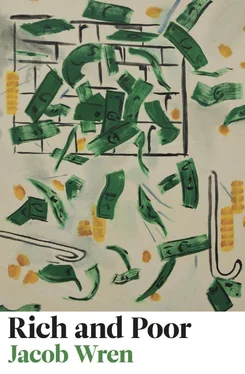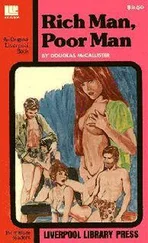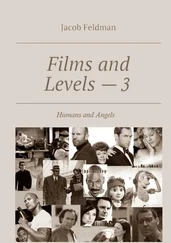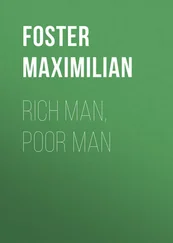When the chalkboard was full, the mentor asked us all to sit for a minute of silence. The silence was for her husband, who had died in a struggle much like the one we planned to start first thing tomorrow. But it was also for every worker who had ever suffered or died in a struggle for their basic rights. We all sat in silence, nothing to listen to but the crackle of fire, and during the silence I thought about all these people I had met since coming here. How they had accepted me almost immediately, laughed at and with me, taken my foolhardy plan — was it a plan or was it only a desire — almost more seriously than I had at first. I then wondered if any of the men sitting with us were spies, rats on the payroll of one of the subcontractors, and the minute this meeting was over they would run to the bosses and describe anything and everything they could remember. But a minute of commemorative silence is not the right time to be thinking of rats, and before it was done I hope I gave at least a few seconds for a quick prayer that we’d all survive, that whatever happens next we don’t turn on each other and instead find ways to lend each other our strength. She must have been reading my mind, because the mentor brought the silence to a close by asking each of us to look inside ourselves. (I wanted to roll my eyes but also didn’t want to undermine her in any way.) She said we each should think long and hard to figure out where we, each of us individually, could find the strength to hold out, to keep going for as long as it takes.
She then thought we should each say something, a few words or a few sentences. These words could be anything, but if we all listened to each other, we could later remember what others had said in moments we were losing faith or the will to go on. What each of us said now might be like a message in a bottle we were throwing into the future, to lend us hope at some future moment we might need it the most. Once again, after each of us had said his piece, there were quiet pockets of translation. Statement, translation, statement, translation, and on it went until every last one of us had said at least a few words. I learned so much as we went round and around. It was both heartfelt and heartbreaking. I don’t think I’ve ever listened that hard in my life. I wish I could now remember every last word, but I don’t, so I fear these are just a few of the lines I still recall, that stuck with me, though I’m sure I’ve gotten some of them slightly wrong, and perhaps with others completely missed the point.
“If I ever have children I don’t want their life like this. Or when any of us have children. Our children should have something else.”
“Make the bastards pay.”
“Dignity. That is what makes life worth living. We all know this.”
“I came here looking for a better life and all we get is shit. And yet today I feel something different.”
“I look around at all the faces and think: these are the people I want to fight with. Win or lose, I feel proud to be doing this with all of you.”
“We have no choice. We win or we die.”
“If my father could see me now, I know he would be proud of me.”
“Those fuckers will learn to treat us with respect.”
“I’m afraid. There’s no shame in admitting you’re afraid. But I won’t back down.”
“When I think that we’re all in this together, it almost makes me want to cry.”
“Dignity. I also think that’s the best word. Dignity.”
“They beat us but they don’t yet kill us. They think if they beat a few dozen of us we’ll get scared and back down. That’s maybe what always happened before. They beat a few of the troublemakers and everyone else backed down. But now we’re organized and it will take more than a few beatings to stop us.”
“I just want to stand up. I just want to look the problem in the eyes and stay on my feet.”
“If we fight, whatever else happens, they no longer own us like they did before. Already there’s something we’ve won.”
“We aren’t slaves. No one should ever be able to say that they own us.”
“I can’t fucking wait to tell them about this back home.”
“Just a few weeks ago all of this seemed impossible to me. I still can barely believe any of this is happening. It’s like a dream.”
“I can feel it in my bones. We’re going to win. Maybe not everything, but we’re going to win.”
“Some day all these fields will be workers’ co-ops. And the capitalists will no longer get a share.”
1.
I was told it would be an informal gathering. Instead it feels more like a job review. But it was only an informal gathering. And, after all, who were they to review me. I sit at the front of the boardroom, doing my best to ooze my natural charm, to speak to each of the colleagues staring at me as if I was speaking to them alone. The order of my talk is easy enough to achieve, each of the places I’ve visited and what I may or may not have learned there: Cologne, Milan, Zurich, Singapore, etc. But as I’m placing my spin across each of these stories, I can feel the spin is not quite taking shape. As I’m talking — I don’t know why I didn’t notice this before — I realize each of these stories is almost only about me, has little to do with the relative health or strength of the organization. I don’t know if others in the room are picking up on it, but as the cities I visited pile up in my recounting of them, I feel I am recounting yet another cliché of a cliché: the man who travelled the world only to find himself dissecting the minutiae of his own reflection.
As I am talking I’m also trying to shift tactics, wondering if there’s some tentative way to float out my new idea — CEO as supportive friend to the worker — to see if I can bring the idea into the room in a manner that doesn’t incite panic. I decide I’ll try to do so within the shell of the story of the Italian kid. How the new young workers consider themselves virtuosos, and perhaps there is a new kind of virtuosity for our organization to engage in. A virtuosity in making our workers feel valued and supported. Even before this sentence is entirely out of my mouth I feel I am in the process of making one of the worst missteps in my entire career. It’s like I’ve said we’re going to make money by spreading the plague. (Actually, if I had said that, I believe the reaction would have been considerably more positive.) But I’ve always been a visionary, and sometimes being a visionary means pushing past negative reactions to the success that lies on the other side. The more you gamble the more you win, if you win. But, of course, also the more you lose. How big a gamble was this and was it one I could actually win? Was this informal gathering the right place to be making my tentative first move? I look around the room and have another thought, also extremely obvious. These are all men who dream of some day having my job, of taking me out and taking my spot. This isn’t paranoia or is it? When I was their age, if I had found myself in a similar situation, I would have certainly wanted to do the same.
After the meeting is over I can’t stop thinking about it. It’s like I’ve already made the first move in a chess game that might last for the rest of my natural life and worry that my opening gambit was extremely poor. But I’m still in charge. I can still choose to pack up the pieces and put away the board, go back to whatever game I was playing before (not chess but perhaps Monopoly). Never before have I shied away from a challenge, why would I start now? But is this the challenge I want? How do you know what you do or don’t want before it’s too late to turn back? I’m trying to step back from myself, look at the situation as I would if it concerned someone else. An aging CEO — always known for his panache, shrewdness and rapacity — decides to turn over a new leaf for the final chapter of his life and make life better for some actual people. Does it sound like something noble or does it sound like complete bullshit? Why is there no one close by who I trust enough to fully discuss these matters?
Читать дальше












